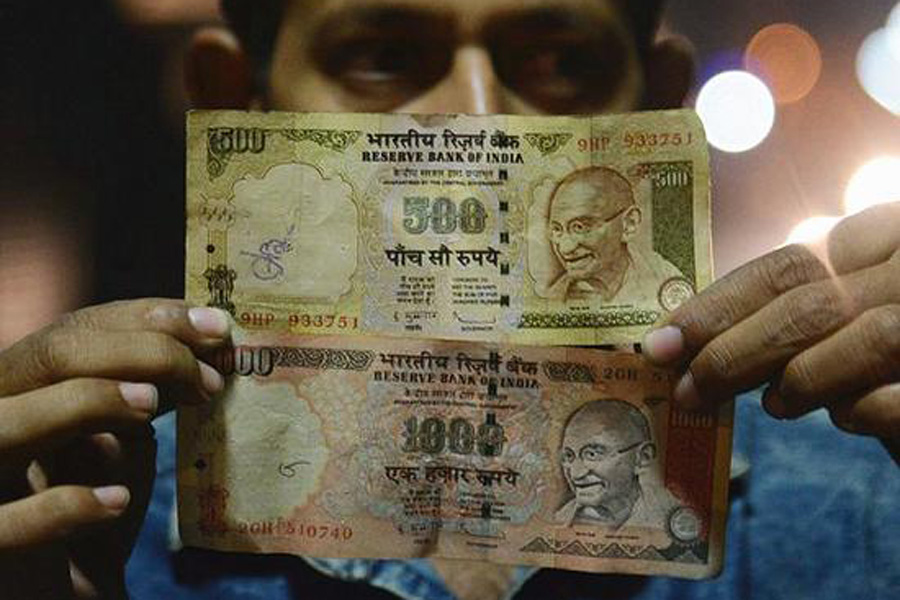Modi’s Anti-corruption Move: Pains or Gains


In 1951, 20th Century Fox released a movie called The Day the Earth Stood Still, in which a powerful alien attempts to help humans correct bad habits through surgical means. On November 8, 2016, India experienced a similar situation when Prime Minister Narendra Modi announced that 500 and 1,000 rupee bills would no longer circulate. When midnight struck, the country’s two largest bills transformed into waste paper.
The development seems to have paralyzed the entire country for days. Citizens suffered due to the limit of 4,000 rupees of new bills per person per day. Even envoys, news agencies and foreign enterprises in India joined the long lines outside banks across the country with helplessness.
Capitalizing on the situation, Modi’s rivals are using the negative public sentiment to strengthen opposition. But emotions won’t lead to ideal resolutions. Clarifying the basics will help to understand the incident from a more constructive perspective.
The Price Paid by Modi
In a society where the vast majority of transactions are still performed with cash, 500 and 1000 rupee denomination bills amounted to 14 trillion rupees, or around 217 billion USD, accounting for 86% of the currency circulating in India, according to data released by the Central Bank of India.
To implement such a drastic policy, Modi needed extensive and solid support. Those holding illegal cash will face a dilemma: do nothing and watch the money lose value or report their holdings to the government. The situation is so precarious that even the smallest of improperly acquired gains by people in Modi’s inner circle, especially Modi himself, would lead to political destruction.
Modi has constructed the appearance of high moral ground, but ministers must loyally endorse Modi’s every move or risk a “guilty” label. During this period, perhaps corrupt officials will be left to suffer in silence “like an idiot eating a bitter herb.”
The Price Paid by Citizens
Regardless of any potential future benefits, Indians objectively paid a price for the policy. The costs include both those that could have been avoided and those that could not have been.
Among the avoidable costs: The people will pay for the actual price of the currency transformation. Due to lacking governmental administrative efficiency, anti-counterfeiting measures have not improved significantly with the new currency. So another version could be released soon. Because the new notes were issued suddenly, the public has not enough time to be familiar with them. Lawbreakers take advantage of this to make counterfeit. The fake new 2000 rupees bills of have already emerged.
Some problems are not the Modi administration’s fault. For example, some have argued that ATMs should have software and hardware upgrades to mitigate the impact on the public. The government’s reasoning on this issue is sound: The plan to abolish the old notes had to be kept confidential, and a large-scale upgrade of ATMs would have exposed the plan. Some growing pains are unavoidable during the growth of a country.
Attitude of the Supreme Court
India’s judiciary is highly independent. In a country constructed around the rule of law, politicians cannot do whatever they please no matter how charismatic they are. India’s administrative efficiency has been questioned, but the government’s prudence about fundamental policies has always been respected.
Modi’s move did not miss the supervision from Supreme Court in any way. Actually, the new policy is being scrutinized by the Supreme Court. The Modi administration submitted a supplementary note to the Supreme Court to request its support. Opponents used the same judicial procedure to express their concerns: Attorney Sangam Lal Pandey mentioned during “public interest litigation” that Modi’s new deal did not provide enough time for the public to transition smoothly, causing many to face difficulties and discomfort; lawyer Vivek Narayan Sharma argued that the policy “violated the life and trade rights and other rights of citizens.”
An assistant professor at the Jawaharlal Nehru University expressed his opinion thusly: “Every party can fully express their views within the constitution, and discuss until an agreement is reached. Isn’t this the reflection of a most noble modern society?”
Strategies against “Flies and Tigers”
The Modi administration’s new provisions stipulate that the government shall not question residents about amounts less than 250,000 rupees when old bills are exchanged. When someone does surpass this limit, however, if the person’s income statement does not align with the volume of funds, he or she could face a 200 percent punitive tax.
History has shown countless times that after a government issues a policy, the people always quickly discover every loophole. Criminals and corrupt officials are not exceptions.
After the launch of the policy, the first loophole to emerge was avoidance by holding gold. If it is kept in gold, sums much larger than the threshold can be cashed in for bills without worry about the punitive taxes. So many poured into gold and jewelry shops that stayed open late into the night. The market immediately responded: India’s retail gold price jumped 15 to 20 percent in just over 10 hours, and prices rose to as high as $2294 per ounce in some places.
Critics of the move argue that these policies would only snare the corrupt officials who are “flies,” but not the “tigers,” who have already converted the cash into real estate or moved it to Swiss bank accounts.
India’s Long-term Interests vs. Short-term Pains
Every politician walks the tightrope between the long-term interests of the country and the current sentiments of the people.
Modi took the courageous step of reforming India’s currency system via an attempt to expose black money quickly and reduce counterfeit money in the market, cracking down on rampant corruption and terrorism, and more importantly, in the long run, promoting stability of tax revenues, mobile payments and e-commerce. But to win the dangerous struggle between distant targets and immediate interests, Modi must feel the rhythm of the move and demonstrate political shrewdness.
No matter the outcome, I personally commend Prime Minister Modi. We should show more tolerance and encourage to these brave reformers. As described in The Day the Earth Stood Still, when the planet stops spinning, a new social driver will emerge.
The author is a former Chinese diplomat to India and an assistant research fellow with the Institute for Comparative Politics and Public Policy at the Shanghai Institutes for International Studies.
